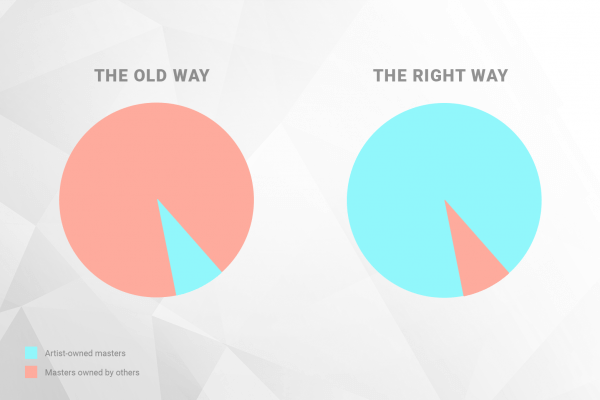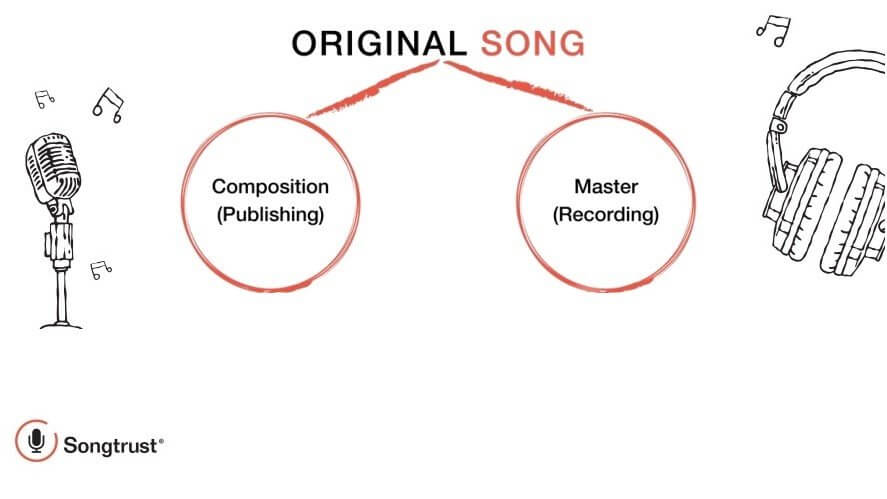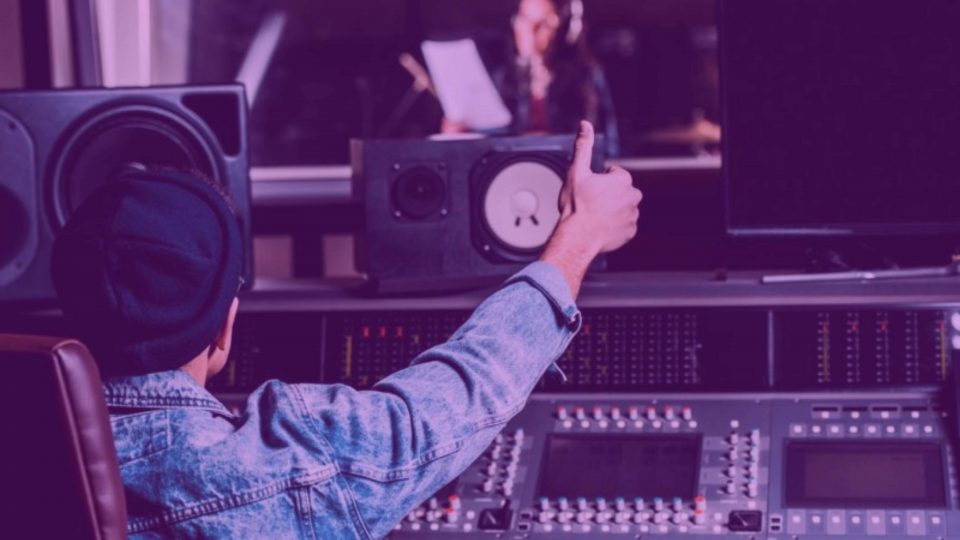Master Recordings: What Are They and Why Own Them?
To own your masters, which are your master recordings, is to have full control of your music.
Master recordings are always at the heart of a record deal between a recording artist and a record label. If you don’t own your master recordings but your label does, which is the case for many artists signed to major record labels, then the record label has more say than you over your music – though it’s not yours if you don’t own the master recording.
If your label owns your master recording rights, the label can dictate what movies and other media the recordings can feature in, what countries they’ll sell the album in, etc. Essentially, all you can say about the song is that you performed on it and therefore get publishing rights – which are different to master rights.
But what is a master recording really? What does it mean for the future of your music?

What Are Music Masters?
A master recording is the official original recording of a song, sound, or performance. “Master recording” or “sound recording” can be a mouthful, so they’re commonly referred to as “masters”.
A master recording is the official original recording of a song, sound, or performance.
A master recording is an original source that all the later copies or covers use as source material.
For example, if you cover my song that I own the master recording of, your version only has publishing rights for the instruments and vocals in your version. You don’t get compensated when my version makes a sale, but I get compensated when either of our versions makes a sale because I own the original masters.
However, if a label owns the masters for my version then I would only get compensated if you include anything that I myself performed or wrote (whether a vocal adlib or a guitar riff) in your version. Regardless, it’s the label that gets compensated when your version makes a sale and not me if they own the masters.
If I own my masters, I have the legal power to say that you can’t cover the song in question. If the label owns the masters, even if I wrote and performed everything in the song, I have no power to deny you covering my song but the label does.
Owning Your Master Recordings as an Artist
To own your masters as an artist gives you the legal rights to do with the song as you please.
Owning your master recording rights allows you to truly maximize your revenue streams with the track because you have full say over how other people can use your music.
This power gives you the legal ability to license the recording to any third parties, such as TV shows, films, commercials, and even for sampling by other artists.
But if your master belongs to someone else, like the record label we spoke about, or the music producer or sound engineer, then only they have the right to license out the recording and collect the royalties from it.
The Difference Between Publishing Rights and Master Rights
Publishing rights refer to the rights of a musical composition. That means publishing rights are only concerned with the composition itself. From the melody to the lyrics, etc.
The master recording is the sound recording. A musical composition like lyrics, a guitar riff, etc. can feature in many different sound recordings such as covers and remixes.
Publishing royalties/composition royalties and sound recording royalties are two different revenue streams.

Let’s say for example I only performed on the track we discussed earlier while a songwriter composed everything about the song – including the lyrics. Let’s say that only the music producer we worked with owns the master recording too.
When you come to cover my song, the music producer will get paid regardless. The song composer will only get paid if you use the lyrics or melody that they wrote. I, on the other hand, won’t get paid at all. This is because I don’t own the master for the original version and I didn’t compose any of the songs myself.
What is common, though, is for the performing artist to get a share of the sound recording royalties. They may not get a say in what the song can use for or where it can be licensed for commercial use, but they will get a percentage of the profit.
All samples in the Mixxed sample library are royalty free. Therefore, you can use them in your music however you like.
The sampling revolution has risen in popularity and shaped music since the early 1970s. Sample culture continues to transform how millions of artists and producers do their thing in DAWs.
You too can break conventional norms, challenge the status quo, and open Pandora’s box of sound design.
Mixxed works with a growing number of sample labels and contributors to provide you with an affordable sample subscription service that’s more accessible than any before.
You’ll have access to our growing catalogue of loops, one-shots and sound effects that you can browse, download and keep forever for less than $3 a month.
Sign up today to find your sound!
